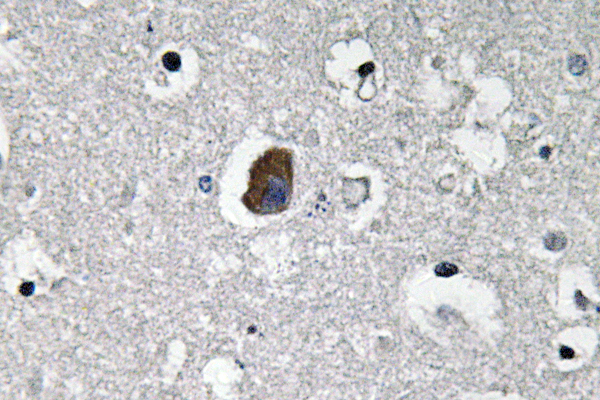产品名称
P-glycoprotein 1 Rabbit Polyclonal Antibody
别名
p-pg;ABCB1; MDR1; PGY1; Multidrug resistance protein 1; ATP-binding cassette sub-family B member 1; P-glycoprotein 1; CD antigen CD243
蛋白名称
Multidrug resistance protein 1
存储缓冲液
Liquid in PBS containing 50% glycerol, 0.5% BSA and 0.02% New type preservative N.
Human Gene Link
http://www.ncbi.nlm.nih.gov/sites/entrez?db=gene&term=5243
Human Swissprot No.
P08183
Human Swissprot Link
http://www.uniprot.org/uniprotkb/P08183/entry
Rat Swissprot Link
http://www.uniprot.org/uniprot/P43245
免疫原
The antiserum was produced against synthesized peptide derived from human P-glycoprotein 1. AA range:534-583
特异性
P-glycoprotein 1 Polyclonal Antibody detects endogenous levels of P-glycoprotein 1 protein.
宿主
Polyclonal, Rabbit,IgG
背景介绍
The membrane-associated protein encoded by this gene is a member of the superfamily of ATP-binding cassette (ABC) transporters. ABC proteins transport various molecules across extra- and intra-cellular membranes. ABC genes are divided into seven distinct subfamilies (ABC1, MDR/TAP, MRP, ALD, OABP, GCN20, White). This protein is a member of the MDR/TAP subfamily. Members of the MDR/TAP subfamily are involved in multidrug resistance. The protein encoded by this gene is an ATP-dependent drug efflux pump for xenobiotic compounds with broad substrate specificity. It is responsible for decreased drug accumulation in multidrug-resistant cells and often mediates the development of resistance to anticancer drugs. This protein also functions as a transporter in the blood-brain barrier. [provided by RefSeq, Jul 2008],
组织表达
Expressed in liver, kidney, small intestine and brain.
细胞定位
Cell membrane ; Multi-pass membrane protein . Apical cell membrane .
功能
catalytic activity:ATP + H(2)O + xenobiotic(In) = ADP + phosphate + xenobiotic(Out).,disease:Genetic variations in ABCB1 are associated with susceptibility to inflammatory bowel disease type 13 (IBD13) [MIM:612244]. Inflammatory bowel disease is characterized by a chronic relapsing intestinal inflammation. It is subdivided into Crohn disease and ulcerative colitis phenotypes. Crohn disease may involve any part of the gastrointestinal tract, but most frequently the terminal ileum and colon. Bowel inflammation is transmural and discontinuous; it may contain granulomas or be associated with intestinal or perianal fistulas. In contrast, in ulcerative colitis, the inflammation is continuous and limited to rectal and colonic mucosal layers; fistulas and granulomas are not observed. Both diseases include extraintestinal inflammation of the skin, eyes, or joints. Crohn disease and ulcerative colitis are commonly classified as autoimmune diseases.,function:Energy-dependent efflux pump responsible for decreased drug accumulation in multidrug-resistant cells.,online information:P-glycoprotein entry,online information:The Singapore human mutation and polymorphism database,polymorphism:Genetic variation in ABCB1 may play a role in patients who do not respond to drug treatment.,similarity:Belongs to the ABC transporter family.,similarity:Belongs to the ABC transporter family. Multidrug resistance exporter (TC 3.A.1.201) subfamily.,similarity:Contains 2 ABC transmembrane type-1 domains.,similarity:Contains 2 ABC transporter domains.,tissue specificity:Expressed in liver, kidney, small intestine and brain.,
纯化
The antibody was affinity-purified from rabbit antiserum by affinity-chromatography using epitope-specific immunogen.

